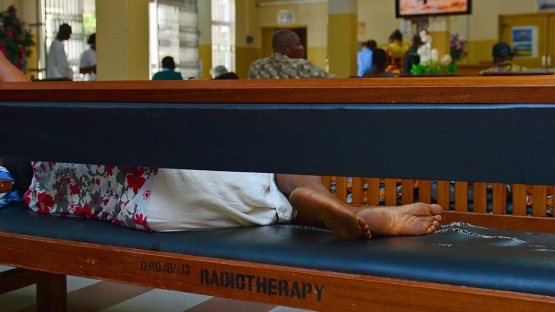Collecting patients’ data in a comprehensive national registry is key to improved and effective cancer care in Africa. This was the main conclusion of a recent workshop held in Brazzaville, Republic of the Congo. The workshop brought together health authorities and cancer control experts from 19 francophone African countries. With developing regions accounting for almost 70% of all cancer-related deaths, African experts are working to tackle the disease in a holistic manner.
“We need to understand the size of the cancer problem and how it’s developing,” said Charles Gombé Mbalawa, Director General of the National Institute for Research in Health Sciences in Brazzaville, and the workshop’s host. “And we need to know the extent to which we are successful at dealing with it.”
The workshop was co-organized by the IAEA, the World Health Organization’s Regional Office for Africa (WHO-AFRO), the International Agency for Research on Cancer (IARC), the African Cancer Registry Network and the Republic of the Congo.
Cancer registries compile and provide information on the number of new cancer cases, in addition to the total number of cancer cases, as well as death and survival rates, and where cancer patients are located. With this data, policymakers can more effectively plan services, from prevention campaigns to treatment for cancer patients.
“In low and middle-income countries, there is no vital health statistics system that we can fall back on, so cancer registries are often the only source of information available,” said Max Parkin, a cancer registry expert and Coordinator of the African Cancer Registry Network.
The workshop in Brazzaville was an excellent opportunity to exchange experiences among African countries at different stages in cancer registry development, Gombé Mbalawa said. Participants shared best practices in cancer control and gathered a number of recommendations to take back to their governments, such as ensuring consistent follow-up after diagnosis and treatment to obtain cancer survival data, assessing the impact of screening and early detection programmes, strengthening capacities in cancer registration to consolidate progress made during the workshop and creating more opportunities for collaboration between cancer registries in Africa.
The event was valuable in that it brought cancer registry technicians and health authorities into contact, two groups that often coexist without necessarily appreciating the challenges they share or the opportunities for synergy, Parkin said.







